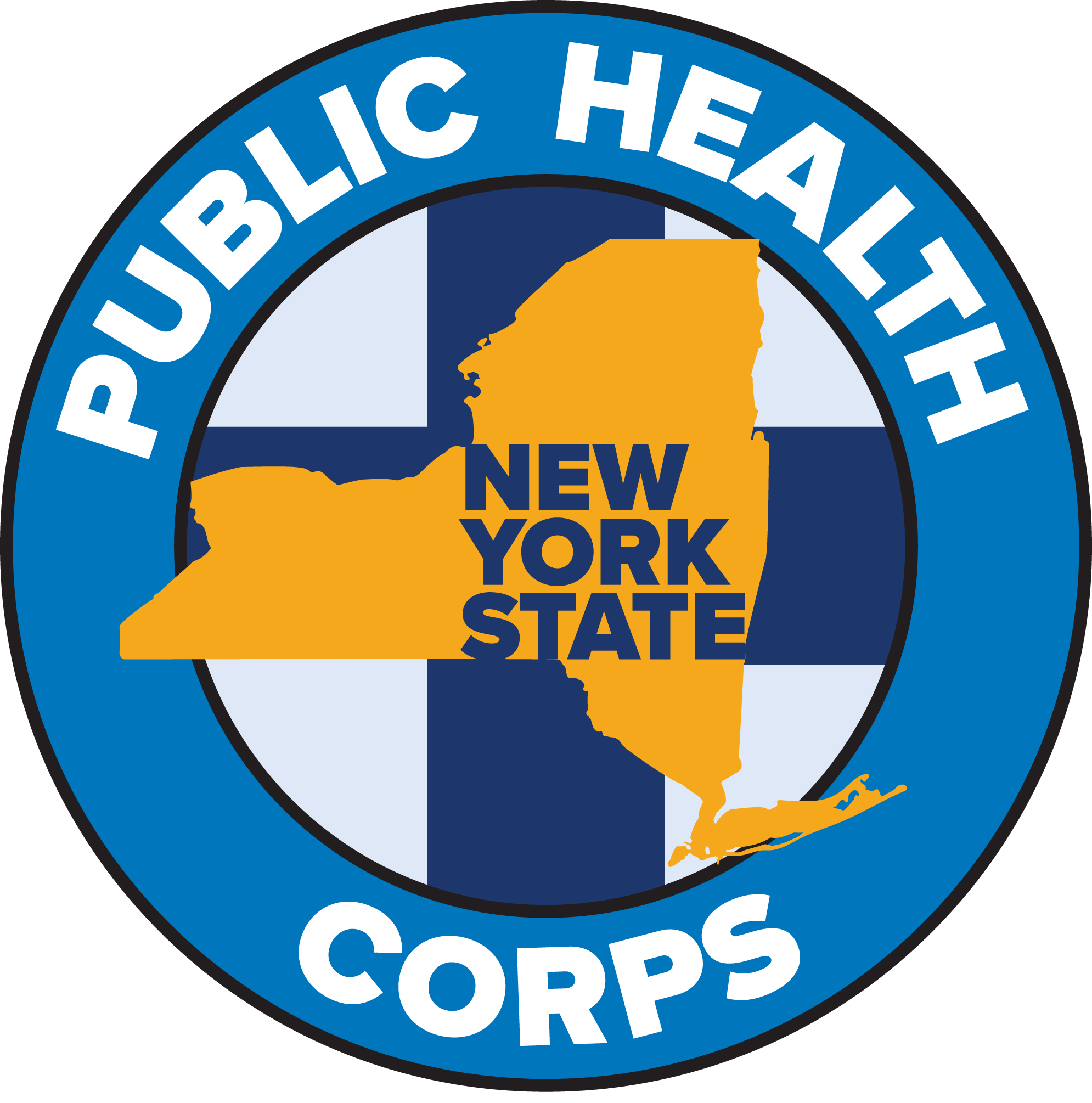Mentor & Supervisor Resources
- Mentor Resources
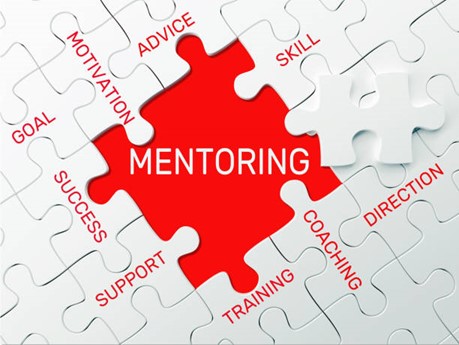
Mentors are partnered with NYSPHC Fellows placed at the New York State Department of Health (NYSDOH), NYSDOH Regional Offices, Local Health Departments (LHDs) and Community-Based Organizations (CBOs). Mentors serve as professional role models and technical advisors, facilitating peer learning and providing relevant mentoring, career planning and navigational support to Fellows, enhancing their experience within the local and statewide public health landscape and the NYSPHC Fellowship program.
The NYSPHC Fellowship Program will be utilizing a cohort style of mentoring with the expectation of Mentors leading between 4-8 NYSPHC Fellows for up to two years. Cohorts will be determined by pairing Fellows with a Mentor(s) whose experience, skillset and knowledge are similar to a Fellow’s current Fellowship project, experience, and interests. Cohorts will be regionally based pending availability; however, Mentors may have Fellows located throughout the state. Mentors may have the opportunity to co-lead a cohort.
- Mentors have the opportunity to co-lead a cohort if requested.
- Cohorts will be determined based on Mentor experience and knowledge, and Fellows' Fellowship projects and interests.
Mentor Benefits
The NYSPHC Mentor is a volunteer position with no financial compensation, however, Mentors will gain a great deal from participation in the program:
- Direct influence and support of the development of the next generation of public health professionals.
- Networking opportunities with young professionals and future job seekers.
- Access to educational materials, presentations, and collaboratives developed by or made available through the NYSPHC.
- Remaining abreast of current events and technical updates relevant to the designated public health priorities.
- Opportunity to share best practices and to learn about or hear from others in the field about best practices, emerging research, and public health topics.
Mentor Nomination and Self-Nomination
Mentors can engage with the program through the completion of the NYSPHC Mentor Nomination Form. Mentors can self-nominate, be nominated by a colleague, or recruited and nominated by an LHD or program partner including members of the Board of Health, NYS Medical Reserve Corps, Community Based Organizations, and others. Mentors should anticipate a term of up to two years, ending on July 31st, 2026, to align with the set two-year Fellowship period.
Being a mentor is an important responsibility and we are grateful for our volunteers for dedicating time from their already busy schedules. If you have questions about becoming a Mentor, would like to be a Mentor or refer a Mentor, please contact NYSPHCfellows@health.ny.gov.
Measuring Mentoring Experience through Surveys
The NYSPHC continues to seek opportunities to improve the program and the experience for all participants. To achieve this, NYSPHC staff will meet with Mentors for one hour on a bi-annual basis to discuss overall satisfaction and provide honest feedback about their experience in the program. Mentors will also be asked to complete short surveys throughout the duration of their Mentorship to assist NYSPHC staff with program improvement strategies.
Mentor Duties and Responsibilities

Mentors are expected to hold themselves to the highest professional standards of ethical and respectful behavior.
Mentor obligations and capacity are flexible but expected duties and responsibilities may include the following:
- Communicate as needed with program partners:
- NYSPHC Staff:
- to draw support for mentee meeting content and facilitation, completion of periodic mentee evaluations, and identify opportunities to participate in NYSPHC program activities.
- NYSPHC Staff:
- Determine a meeting frequency with your cohort.
- Mentors are only expected to facilitate a one-hour quarterly meeting with their Fellow cohort.
- Training and other resources will be made available through the NYSPHC Training and Resources site for Mentors to draw topics and discussion points for these meetings. Mentors have autonomy in the planning and facilitating of meetings with their assigned Fellows but have the support of the NYSPHC staff to develop agendas, talking points and/or prompts for meeting discussion.
- Mentors and Fellows are encouraged to meet outside of scheduled group cohort meetings, as needed.
- Mentors are encouraged to meet with their Fellows individually, if requested.
- Be reasonably accessible to Fellows (not assigned to the Mentor) who may reach out through the NYSPHC directory.
- Cohorts are encouraged to network and collaborate with other cohorts.
- Mentors communicate with other mentors to promote collaboration amongst cohorts.
- Mentors will be expected to attend two Mentor Check-In calls lead by NYSPHC Staff.
- Communicate as needed with program partners:
NYSPHC Mentor Directory
The NYSPHC Mentor Directory is an index of NYSPHC Fellowship Program Mentors listed by both region and name. The directory is updated on an as-needed basis when Mentors submit their profiles to the program.
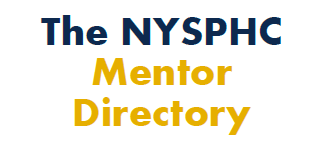
NYSPHC Core Competencies & Capacity Building
The NYSPHC Fellowship Program seeks to build capacity and measure gains realized during the Fellowship period through program evaluation efforts. The NYSPHC Program hopes to demonstrate that a focus on field placement and actionable core competencies can effectively develop needed capacity in cross-cutting, strategic skills and enable Fellows to be successful practitioners of public health moving forward.
To assist with Fellow skill building, Mentors are encouraged to utilize the core competencies (included below) when planning and facilitating their cohort meetings. The core competencies can be used to create agendas, develop topics for discussion, determine valuable trainings to share, etc. for their Fellow cohorts. Mentors are encouraged to engage colleagues, external partners, and other Mentors to effectively explore each of the core competencies with their cohort.
To meet this goal of the Fellowship Program, NYSPHC has adopted a modified set of core competencies based on the knowledge, skills, and abilities (KSAs) used in the training needs assessment (TNA) portion of the Public Health Workforce Interests and Needs Survey (PH WINS). The PH WINS TNA and KSAs are based on the Council of Linkages Between Academia and Practice – Core Competencies for Public Health Professionals and are aligned with the Strategic Skills initially developed by the National Consortium for Public Health Workforce Development, convened by the de Beaumont Foundation between 2013 and 2017.
The NYSPHC Fellowship Program’s Strategic Skills/Core Competencies include:
- Effective Communication: Communicate in a way that persuades different audiences to act.
- Data-Based Decision Making: Identify appropriate sources and evidence-based approaches to address public health issues.
- Justice, Equity, Diversity, and Inclusion (JEDI): Support development of diverse public health workforce demonstrated through incorporating health equity and social justice principles to deliver socially, culturally, and linguistically appropriate programs and services to individuals and the populations in a community.
- Budget and Financial Management: Financial analysis methods used to identify and leverage funding mechanisms to develop sustainable funding models to support programs and services.
- Change Management: Assessing the drivers in one’s community to modify programmatic practices that may influence public health programs and services.
- Systems & Strategic Thinking: Create and apply quality improvement processes to address the impacts of social determinants of health in individuals, families, and the overall community.
- Community Engagement: Engage community members in the design and implementation of programs to improve health in a community.
- Cross Sectoral Partnerships: Build and engage collaborations within the public health system among traditional and nontraditional partners to improve the health of a community.
- Policy Engagement: Collect information and identify options for the feasibility of implementing policies external to the organization that affect the health of the community.
- Specialized Skills: Technical skills and content knowledge specific to a programmatic area.
Opportunities for Engagement with Broader Program Initiatives
Although not required, some other program initiatives that may be available for Mentor participation are:
- Speaking or participating at a NYSPHC Consortia Meeting
- Presenting as part of an Educational Series session
- Speaking or participating at NYSPHC Annual Summit
- Networking with other NYSPHC Mentors and Fellows through a shared distribution list
Virtual Collaboration and Networking:
- Develop a shared space for cohort communication:
- Each cohort is encouraged to develop a shared space for collaboration using sites such as Microsoft Teams/SharePoint/Slack.
- This site will be maintained as a shared space for Mentors and Fellows to collaborate within and across cohorts and regions. The site will allow participants to share resources, collaborate on development of tools or resources, engage in discussion boards, and access documentation for their Mentor meetings.
- NYSPHC Training and Resources Website:
- Mentors will have access to the NYSPHC Training and Resources website, a site managed by the NYSPHC program staff to share training opportunities with Fellows.
- Mentors are invited to share resources, upcoming trainings, or recorded sessions with the NYSPHC staff to be considered for posting.
Frequently Asked Questions

Who are NYSPHC Mentors and what is their role?
Community-based volunteer Mentors serve as professional role models for NYSPHC Fellows and technical advisors beyond the classroom, facilitating peer-learning and providing relevant mentoring, career planning, and navigational support within the local public health landscape as they address challenges in their specific assignment. Mentors are public health, allied health, and community-based professionals who have served or are currently serving the community. Each NYSPHC Fellow will be assigned a Mentor; each Mentor will be assigned up to eight Fellows.
How can I sign-up to be a mentor or nominate someone else as a mentor?
Mentors can self-nominate, be nominated by a colleague, or recruited and nominated by an LHD or program partner. If you have questions about becoming a Mentor, or would like to be or refer a Mentor, please contact NYSPHCfellows@health.ny.gov
Are mentorship opportunities open to grad students?
The NYS Public Health Corps welcomes all nominations, whether a student or not, who can serve as professional role models for NYS Public Health Corps Fellows. Ideally, the Mentor will have a background in public health or a related discipline, have experience in working within, or in collaboration, to support public health efforts, be knowledgeable enough to serve as a technical advisor beyond the classroom, and have the capacity to foster networking opportunities. If this describes you, we encourage you to please contact NYSPHCfellows@health.ny.gov.
What is the difference between a Mentor and a supervisor?
A mentor is a seasoned and trusted professional whose task is to support the Fellow’s long-term professional development. Mentors use their professional relationships and influence to create opportunities for mutual learning. NYSPHC Mentors also help Fellows identify new opportunities following completion of their Fellowship.
A supervisor is more task-oriented and concerned about the day to day oversight of the Fellow, meeting the tasks and expectations outlined in their job description. A supervisor is also responsible for ensuring the Fellow meets the employer's rules and requirements set forth.
Can a supervisor be a Mentor?
The NYSPHC Fellowship Program recommends these roles be filled by two different people, as a supervisor is charged with ensuring the Fellow meets the tasks and standards of the job description, while the Mentor is charged with helping the Fellow develop professionally and providing networking opportunities.
Can a Tier III Fellow mentor a Tier II or Tier I Fellow?
Mentors serve as professional role models for NYSPHC Fellows and technical advisors beyond the classroom, facilitating peer-learning and providing relevant mentoring, career planning, and navigational support within the local public health landscape as they address challenges in their specific assignment. Mentors are public health, allied health, and community-based professionals who have served or are currently serving the community. Anyone who can fill this role, even a Tier III Fellow, is welcome to serve if the NYSPHC Mentoring Workgroup deems it appropriate.
How are Fellows matched with Mentors?
Mentor-Fellow assignments will occur in counties/communities across New York State where the Fellow and Mentor are best matched. Mentors will be matched to a cohort of NYSPHC Fellows based on the mentor's a Mentor(s) experience, skillset and knowledge and their similarities to Fellows' current Fellowship projects, experience, and interests.
Can a Mentor work with more than one Fellow?
Yes, Mentors will be matched with a cohort of 4-8 NYSPHC Fellows for up to two years. Mentors can request to co-lead a cohort with another Mentor.
Are NYSPHC Mentors paid or is this a volunteer role?
The NYSPHC Mentor is a volunteer position with no financial compensation; however, Mentors will gain a great deal from participation in the program:
1. Direct influence and support of the development of the next generation of public health professionals.
2. Expanded public health network, locally and statewide, fostering connectedness with peers and partnering organizations.
3. Networking opportunities with young professionals and future job seekers.
4. Access to educational materials, presentations, and collaboratives developed by or made available through the NYSPHC.
a. Including Cornell University’s Public Health Essentials Certificate Program: Module 0.
5. Remaining abreast of current events and technical updates relevant to the designated public health priorities.
6. Opportunity to share best practices and to learn about or hear from others in the field about best practices, emerging research, and public health topics.Do NYSPHC Mentors need to be located in NYS?
The NYSPHC does not preclude Mentors who do not live in NYS, but we want to ensure that all our Mentors have a knowledge of the community they are mentoring in. We are aiming to make sure Fellows benefit from and fully understand the community-connected perspective of Public Health and help connect them on the local level.
As the NYSPHC programs grows, Mentors, or people who volunteered to be Mentors, may be identified as speakers and subject matter experts for program events like the Consortia or the program sponsored educational series.
Important Documents and Resources
Documents for Mentors:
- Public Health Essentials Mentor Handbook
- NYSPHC Mentor & Fellow Agreement
- NYSPHC 2.0 Mentor Orientation Session Slides 7.29.24
- NYSPHC 2.0 Mentor Orientation Session Recording 7.29.24
NYSPHC Mentor Logo
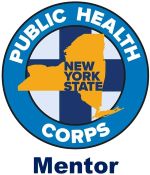
For use in email signatures - click HERE to download.
- Supervisor Resources
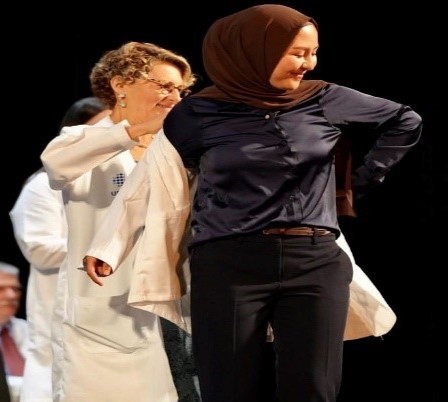
The Host Organization Supervisor oversees the work of the Fellows at the host organization as it relates to policy compliance. They act as an initial point of contact for Fellows’ workspace and respond to Fellows’ questions and needs. The Supervisor provides day-to-day field supervision of the Fellows and meets with Fellows to provide task instructions and operational guidance on responsibilities. They also meet with the Fellowship Placement Coordinator to discuss the Fellows’ placement, progress, goals, and responsibilities and support the integration of program requirements into Fellows’ work schedule.
The Site Supervisor meets with the Fellowship Placement Coordinator at a mutually agreed upon frequency and method to discuss the Fellows’ placement, progress and specific goals and responsibilities for each Fellow. This also provides a forum for the Fellowship Placement Coordinator to communicate any NYSPHC updates.
NYSPHC 2.0 Supervisor Orientation Resources
- August Supervisor Orientation Power Point Slides
- August Supervisor Orientation Recording link, password NYSphc1000!
- September Supervisor Orientation Power Point Slides
- October Supervisor Orientation Power Point Slides
- October Supervisor Orientation Recording link, password NYSPHC2024!
Host organizations are expected to provide Fellows with all standard supplies and/or equipment necessary for the Fellow to conduct approved job duties, such as a workspace/desk, PC/laptop, phone service, office supplies, etc. If your organization needs to request to have NYSPHC purchase an item for your Fellow(s), you must submit a purchase request found in this link: NYSPHC 2.0 Purchase Request Form.
Purchase requests must be submitted by supervisors, any requests submitted directly by Fellows will not be accepted. Please complete the above form and email it to NYSPHCrequest@health.ny.gov with the subject line “Purchase Request” and cc your Fellowship Placement Coordinator. If you are requesting multiple different purchases, please use a separate form for each request. Purchase requests take approximately four to six weeks for approval and processing, and additional time should be expected for any shipping needs. NYSPHC will notify you of approval status within four weeks of receiving your request and will reach out to the sender if any additional information is needed.
Fellow Onboarding Information
